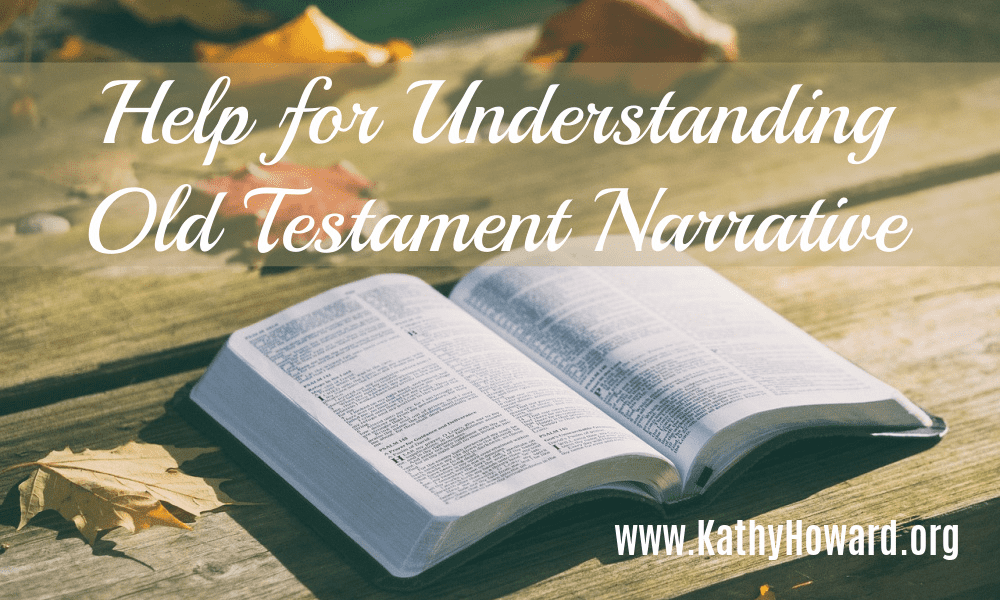The Bible is literature. But we cannot read and understand all its individual books the same way. We must consider the specific literary “genre” or artistic style. Just as we read and respond to a biography differently than we do science fiction, we must learn how to handle the Bible’s various literary genres appropriately.
Depending on how it’s broken down, the Bible includes roughly six to eight different literary genres. To make it even more interesting, while each book has a primary literary style, many also include smaller sections of other genre types within them. (See also “How Biblical Genre Impacts Our Understanding.”)
About 40% of the Old Testament is narrative. It relates historical story. (Although the New Testament contains some narrative, the Gospels and Acts also possess some elements that make them distinct.) “Story” is a powerful teacher. We learn so much through the stories of the Old Testament. (See also “8 Tips to Help You Understand the Epistles” and “4 Tips to Help You Understand the Prophets.”)
For instance, we see how God relates to mankind. And, we learn how God works through the events of history and the lives of people to fulfill His divine purposes.
4 Tips for Interpreting Old Testament Narrative
- Narrative is descriptive, not prescriptive – Story tells us what happened, not necessarily what should have happened. It tells us what the characters did but not necessarily what we should do. Gideon’s story is an example (Judges 6:36-40). Gideon repeatedly laid out a fleece to test God’s Word. While God patiently confirmed His Word to Gideon, it does not mean we should do the same.
- God is the hero of every story – Look for what the story teaches about God’s character, nature, and ways. Even in stories that don’t specifically mention God, He is the main character. For instance, God is never explicitly mentioned in the book of Esther. But His handiwork is clearly evident.
- The teaching in narrative is often indirect – Look for the implicit meaning in the story. Consider Noah and the ark. When we read his story, we don’t run out and build a big boat. But, there are powerful lessons in Noah’s story. For instance, Noah obeyed God even when God’s commands didn’t make sense to him. That’s a good principle to follow!
- Every story connects to God’s big story – All the individual stories and books of the Bible join together to tell one big story (referred to as the “meta-narrative” of Scripture). The Bible tells the story of God’s rule, reign, and redemptive purposes. As you read and work to understand Old Testament narrative, keep in mind that no individual story will contradict God’s Big Story. Also ask, “where does this story fit and what does it teach us about God’s rule, reign, and redemption?”
3 Cautions when reading Narrative
- Don’t treat it allegorically – Scripture does contain some allegory. Jesus’ parables are allegorical by the nature of a parable’s genre. And there are cases where other biblical writers give allegorical meaning to historical events under the inspiration of God. For instance, in Galatians 4:22-26, Paul gives allegorical meaning to Abraham’s two sons Isaac and Ishmael (two covenants). BUT, we don’t have the authority to see allegory wherever we choose in Scripture. Old Testament narratives are historical events and should be treated that way.
- Don’t make assumptions – The stories don’t always give us all the information we’d like to have. God doesn’t tell us everything. But we cannot “fill in the gaps.” Sometimes we have to accept that we just don’t know.
- Don’t use it as a primary source for doctrine – Yes, we will learn a lot about God and His ways through the stories. But other parts of Scripture are better primary sources for developing our system of belief. For instance, the book of Romans is a systematic treatise of our salvation. However, God’s rescue of His people from slavery in Egypt is a beautiful physical demonstration of His role as Savior that can enhance our understanding.
What’s your favorite story in the Old Testament? Will these tips and cautions change how you understand it?
A few other posts you may find helpful:
- How Literary Context Helps You Understand the Bible
- 4 Tips to Help You Understand the Bible
- 10 Observation Tips for Better Bible Study
- Learn more about the Plot in Narrative from The Bible Project



Am so so much blessed by the word of history.
And its reminds me with work Noah did, people didn’t understand him , and he learn to hear from God that he couldn’t dis obeyed God even if there wasn’t have someone to help him. May lord bless you so much.